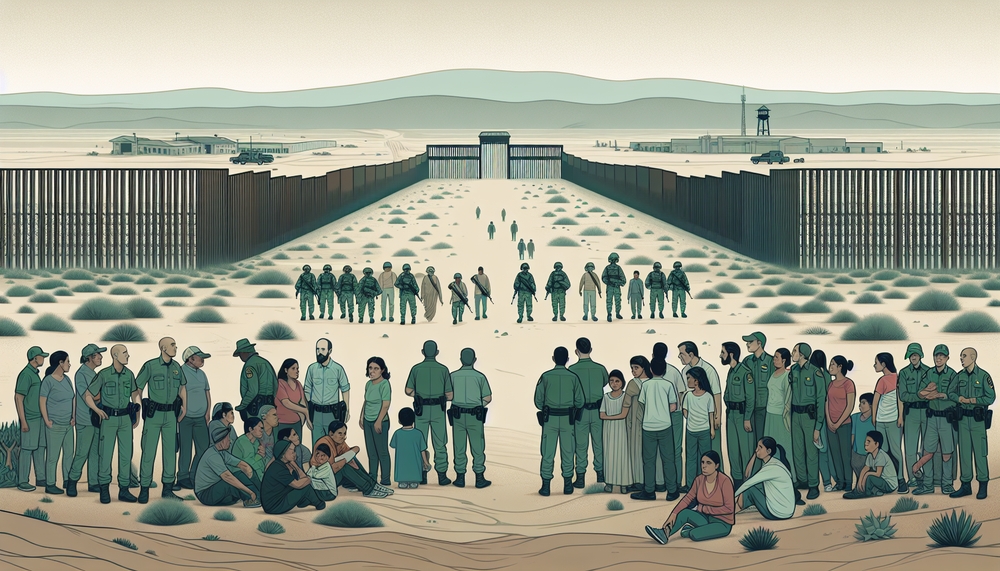Published
- 3 min read
Trump's Mass Deportation Plans: Potential Upheaval for Latin America

A Cascade of Challenges for Latin American Nations
In the unfolding narrative of U.S.-Latin American relations, Trump’s mass deportation plans could usher in significant challenges for the southern neighbors, fundamentally altering the socio-political landscape in the region. Faced with an abrupt pivot from the collaborative policies of the Biden era, Latin American governments now brace themselves for a wave of returnees that threatens to overwhelm their economic systems and social cohesion.
Diplomatic Strains and Political Costs
As highlighted by recent diplomatic tensions between the U.S. and Colombia, the Trump administration’s policy shift underscores the difficulties Latin American leaders encounter when confronting U.S. decisions. Colombia’s brief defiance, led by President Gustavo Petro, serves as a poignant reminder of the steep political cost of opposing the White House. Post-standoff, Petro’s coalition found itself in disarray, exemplifying the precarious balance regional leaders must maintain between asserting national autonomy and ensuring economic stability.
President Petro’s initial refusal to accept U.S. deportation flights, followed by eventual compliance, illustrates the potential consequences of resistance. His challenge, ultimately subdued by economic and diplomatic pressures, serves as a cautionary tale for other leaders contemplating similar actions. The broader message is clear: dissent may lead not only to internal political upheaval but also to economic penalties that could further destabilize already fragile economies.
Economic and Social Turmoil
Latin American economies, grappling with sluggish growth and high unemployment, are unprepared for the large-scale reintegration of deportees. Many returning individuals, whose ties to the United States run deep, may find themselves at a loss, unable to transition their acquired skills to home economies less conducive to their occupational backgrounds.
Compounding these economic challenges is the specter of reduced remittance flows. These financial lifelines, often sent by those residing in the U.S., represent significant portions of some national GDPs. A decrease in remittances due to mass deportations could exacerbate socioeconomic disparities and fuel public discontent.
Ideological Conflicts and Domestic Pressures
The ideological opposition of left-wing governments to Trump’s policies adds another layer of complexity. While diplomatic cooperation with the U.S. remains crucial to avoid punitive reprisals, the resulting domestic repercussions could be severe. The return of a large, working-age population coupled with restrictive U.S. border policies creates a volatile mix that might energize centrist and right-wing political movements at the expense of current administrations.
For leaders like Petro, managing the dichotomy of cooperation with Trump’s administration while addressing domestic dissatisfaction is a delicate balance. The potential rise of conservative and centrist factions might spur left-wing governments to recalibrate their policy agendas, particularly concerning fiscal prudence and economic reforms. Such shifts could inadvertently align Latin American strategies more closely with U.S. objectives.
Security Concerns and Legal Challenges
Furthermore, the impending wave of deportations poses security challenges. Latin American countries will need to evaluate the criminal status of deportees effectively, deciding who among them poses genuine threats to public safety. Resource constraints could hinder these efforts, risking public outcry if violent individuals are released unsupervised into local communities.
Conclusion
In summary, Trump’s mass deportation agenda harbors complex implications for Latin America, threatening to destabilize economies, strain diplomatic relations, and reshape domestic political landscapes. As regional leaders navigate these turbulent waters, they must weigh the diplomatic necessity of adherence against the potential for internal discord. The coming months will reveal how these nations respond, either by adapting to the new geopolitical reality or facing the fractious consequences of these policy shifts.
